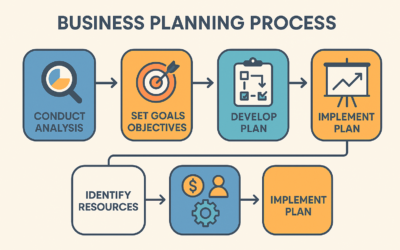If you are self-employed then your business is almost totally reliant on you to be fit and healthy every day.
Your goal may be to employ staff, including a manager, who can run the day-to-day business activities. But if you are not at that point yet, you really need to be able to turn up to work almost everyday just to keep your business going.
Because your business is so reliant on you, it makes sense to have a sound insurance plan in place to protect you and your business, should something happen to you.
Critical Illness Insurance
Most insurance protection plans will include life insurance, but far fewer include critical illness insurance.
This type of insurance pays out a one-time only lump sum if you are diagnosed with a specific major illness and you survive for longer than 14 days after diagnosis.
Life insurance is relatively inexpensive compared to other insurances. That’s because most people do not die during their working ages. The older you get the greater the risk of dying, but still, most people in the US live well into their 60’s and beyond their primary working and earning years.
But that doesn’t mean everyone retains perfect health right up until the day they die!
Since the first pioneering open-heart surgery in the 1960s, people have been getting diagnosed with major life-threatening illnesses or suffered terrible injuries but have survived them due to the advances in medical procedures.
Though they may have survived a major health scare, that does not necessarily mean that they soon returned to their full-time employment.
This was why Critical Illness insurance was introduced.
The big three illnesses that make up about 80% of critical illness insurance claims for the diagnosis of cancer, heart disease, and stroke.
Many people diagnosed with these, and other illnesses, continue to live for many years.
However, some may never return to full time work and suffer the economic loss of that previous fill time income.
In addition, they may be facing significant additional costs.
Critical illness policies can cover as few as seven major illnesses, while others cover 30 or 40 conditions, sometimes more. Each illness covered has extremely specific definition wording in their policy documents. Your diagnosis must meet that definition to be eligible for a successful claim. For example, not every heart attack will be severe enough to meet the definition.
Some polices will cover injuries like a brain injury, or any total and permanent disablement where you can never work ever in any occupation.
Once your medical evidence shows that you meet the definition of the illness, you are paid out the lump sum that you insured.
There are instances where people have successfully claimed and recovered from their illness to return to work full time.
Then again, if you had a heart attack and die within 14 days, which does not trigger a Critical Illness claim, that would instead be a Life Insurance claim.
How much cover do you need?
This will depend on your personal circumstances and what you can afford.
Policies that cover more conditions are likely to be more expensive, but some of the conditions covered might be quite rare. Or in some instances, illnesses are covered that mostly (but not always) don’t affect people until their late 60s and beyond, e.g., dementia.
Generally, this insurance is like living life insurance, so like life insurance you would ideally want enough cover to pay off all your debts, business and personal, then perhaps enough extra to provide a lump sum to be invested to draw done some of the income you would have continued earning, had you not suffered the heath issue that triggered the critical insurance claim.
Seek Advice
Speak to an Insurance broker about the ideal kind of critical illness policy and understand what it does and does not cover.
Then seek advice from professionals like those at Global Resources about what your business can afford, and what the impact would be on your business if you suffered a major illness while uninsured.

0 Comments